Publications
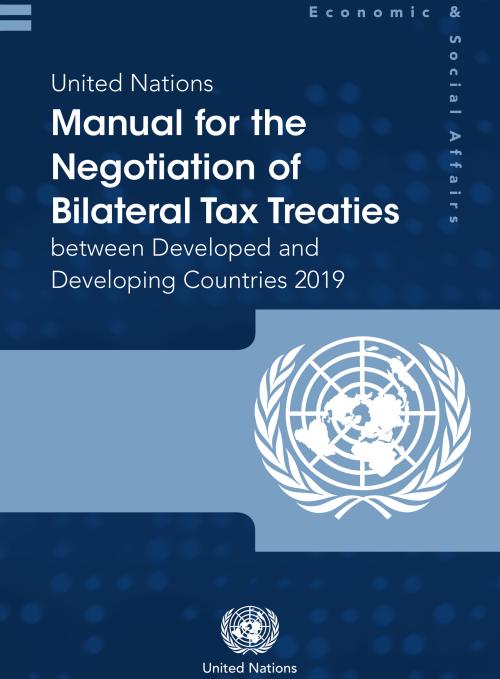
The United Nations Manual for the Negotiation of Bilateral Tax Treaties between Developed and Developing Countries (2019) is a compact training tool for beginners with limited experience in tax treaty negotiation. It seeks to provide practical guidance to tax treaty negotiators in developing countries, in particular those who negotiate based on the United Nations Model Double Taxation Convention between Developed and Developing Countries. It deals with all the basic aspects of tax treaty negotiation and it is focused on the realities and stages of capacity development of developing countries.
While every country should form its own policy considerations and define…
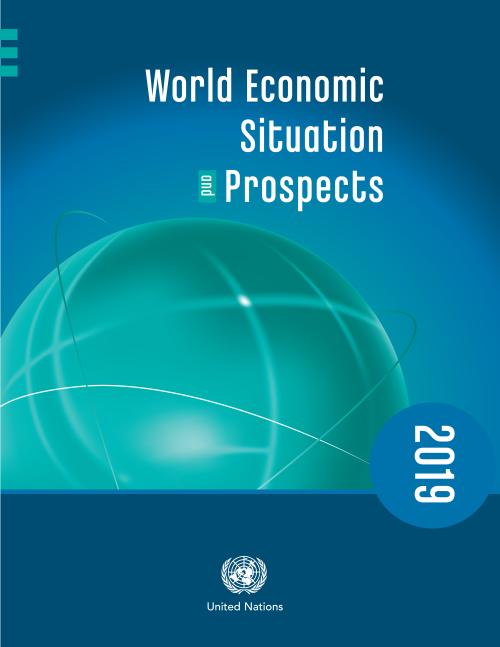
The global economy is experiencing a broad-based growth slowdown amid unresolved trade tensions, high international policy uncertainty, and softening business confidence, according to the United Nations World Economic Situation and Prospects (WESP) mid-2019 report.
The forecast for weaker global growth casts a shadow over efforts to implement the 2030 Agenda for Sustainable Development, which has set universal goals for eliminating poverty, promoting prosperity and social well-being while protecting the environment. Weaker economic growth puts at risk essential investments in areas such as education, health, climate change adaptation and sustainable infrastructure.
…
The 2019 Financing for Sustainable Development Report (FSDR) of the Inter-agency Task Force on Financing for Development warns that mobilizing sufficient financing remains a major challenge in implementing the 2030 Agenda for Sustainable Development. Despite signs of progress, investments that are critical to achieving the Sustainable Development Goals (SDGs) remain underfunded and parts of the multilateral system are under strain.
The FSDR recommends that the international community should use this opportunity to reshape both national and international financial systems in line with sustainable development. If we fail to do so, we will fail to deliver the 2030…
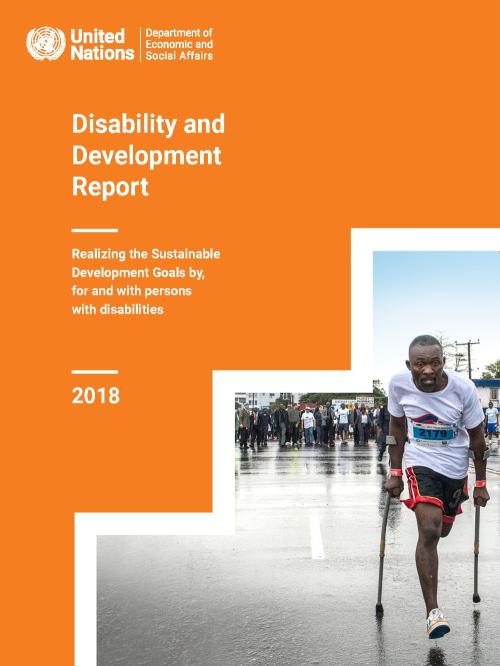
UN Disability and Development Report – Realizing the SDGs by, for and with persons with disabilities
The 2030 Agenda, pledging to “leave no one behind,” is an ambitious plan of action of the international community towards a peaceful and prosperous world, where dignity of an individual person and equality among all is applied as the fundamental principle, cutting across the three pillars of the work of the United Nations: Development, Human Rights and Peace and Security. It is critical to ensure, in this regard, the full and equal participation of persons with disabilities in all spheres of society and create enabling environments by, for and with persons with disabilities.
The UN Disability and Development Report – Realizing the SDGs by, for and with persons with…
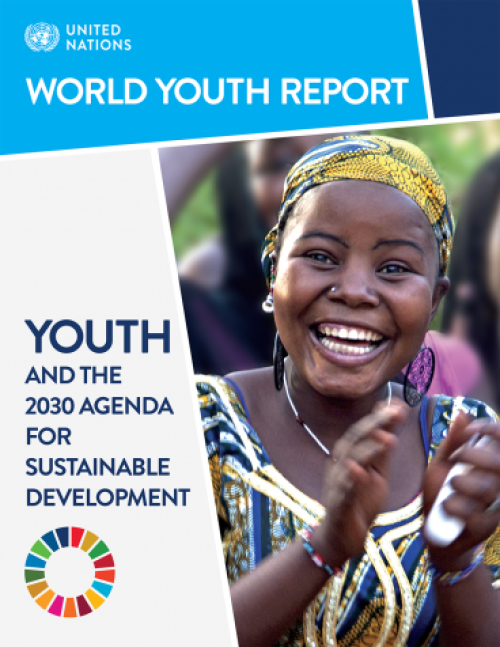
The World Youth Report on “Youth and the 2030 Agenda for Sustainable Development”, prepared by the United Nations Department of Economic and Social Affairs (UN DESA), examines the mutually supportive roles of the new agenda and current youth development efforts. The report provides insight into the role of young people in sustainable development in the context of the implementation of the 2030 Agenda for Sustainable Development and related frameworks, in particular, the Addis Ababa Action Agenda of the Third International Conference on Financing for Development and the World Programme of Action for Youth.
The Report considers the role the 2030 Agenda can play in enhancing youth…
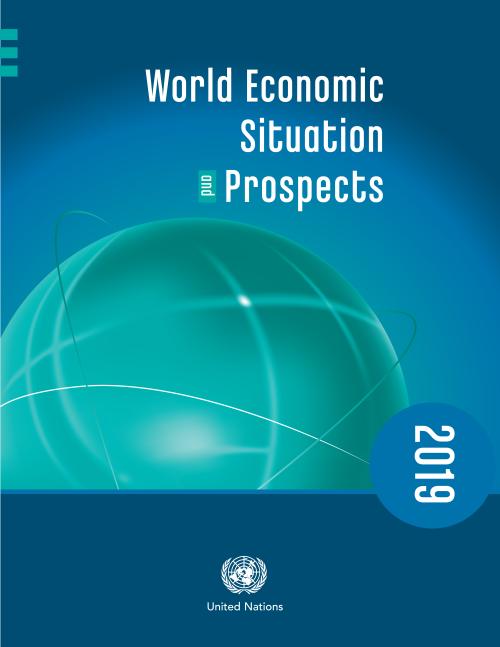
The global economy will continue to grow at a steady pace of around 3 per cent in 2019 and 2020 amid signs that global growth has peaked. However, a worrisome combination of development challenges could further undermine growth, according to the United Nations World Economic Situation and Prospects (WESP) 2019.
UN Secretary-General António Guterres cautioned “While global economic indicators remain largely favourable, they do not tell the whole story.” He said the World Economic Situation and Prospects 2019 “raises concerns over the sustainability of global economic growth in the face of rising financial, social and environmental challenges.”
Global growth is expected to…
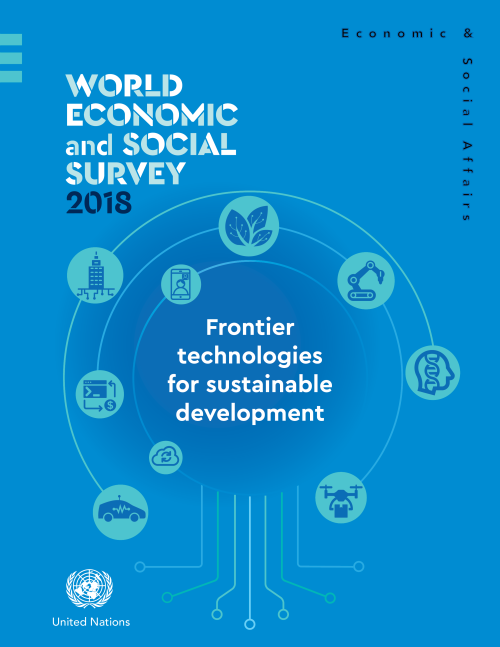
New frontier technologies — everything from renewable energy technologies to biodegradable plastics, artificial intelligence and electric vehicles — hold immense potential to improve people’s lives and significantly accelerate efforts to achieve the Sustainable Development Goals and address climate change. But without appropriate policies, they can also drive greater inequality and increase social dislocations.
The World Economic and Social Survey 2018 produced by UN DESA found that renewable energy technologies and efficient energy storage systems are already enhancing environmental sustainability, allowing countries to “leapfrog” over existing technological solutions. New…
Countries in all regions of the world are continuing to make strides in their efforts to improve e-government and to provide public services online according to a new report launched by the United Nations Department of Economic and Social Affairs today.
In a 2018 ranking of countries on e-government development, Denmark, Australia, and Republic of Korea came out on top of a group of 40 countries, scoring very high on an index (the E-Government Development Index—EGDI), which measures countries’ use of information and communications technologies to deliver public services. The Index captures the scope and quality of online services, status of telecommunication infrastructure and…
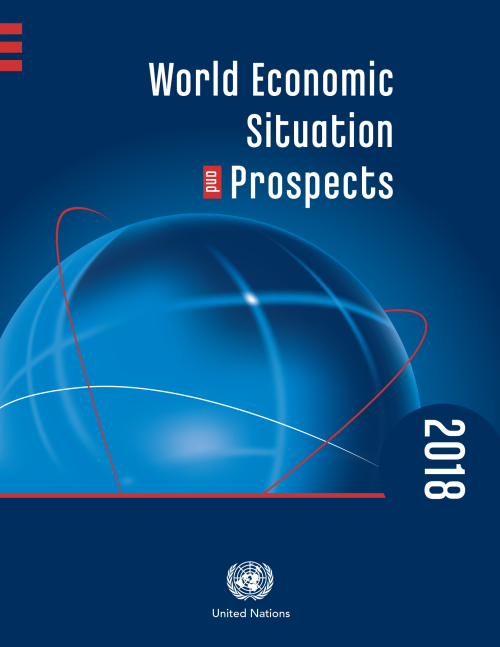
Growth in the world economy is surpassing expectations and global GDP is now expected to expand by more than three per cent this year and in 2019, reflecting strong growth in developed countries and broadly favourable investment conditions. But rising trade tensions, heightened uncertainty over monetary policy, increasing debt levels and greater geopolitical tensions can potentially thwart progress, according to the United Nations World Economic Situation and Prospects (WESP) as of mid-2018.
According to the report, world economic growth is now forecast to reach 3.2 per cent both in 2018 and 2019, an upward revision by 0.2 and 0.1 percentage point, respectively. This revised…
The 2018 report of the Inter-agency Task Force on Financing for Development finds that most types of development financing flows increased in 2017, and that there has been progress across all the action areas of the Addis Ababa Action Agenda. This progress was underpinned by an upturn in the world economy, but at the same time the report warns that risks could derail development progress and structural impediments continue to undermine sustainable development prospects.
The 2018 report provides policy options which, if implemented, would put the world on a sustained and sustainable growth and development path. It also examines the financing challenges to the SDGs under…
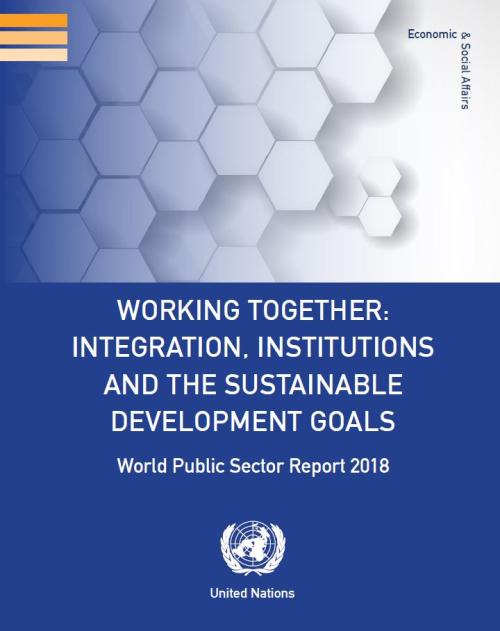
Two years ago, Member States of the United Nations adopted the 2030 Agenda for Sustainable Development. Acknowledging possible synergies and trade-offs between the sustainable development goals (SDGs) and targets will make it much easier to achieve the Agenda and to translate ambition into reality.
The World Public Sector Report 2018 aims to inform efforts by countries to foster policy integration for implementing the SDGs. It asks, what are the challenges to and opportunities for policy integration across the different stages of policy cycle at the national level? What are some innovative examples of institutional and administrative arrangements that can foster integrated…
Universal social protection is a potent development policy tool that can alleviate poverty, inequality and social exclusion. Few countries have been able to reduce poverty and improve living conditions on a broad scale without comprehensive social protection systems in place.
The international community’s consensus on the importance of social protection has been reinforced with the adoption of the 2030 Agenda for Sustainable Development. Target 1.3 of the Sustainable Development Goals stresses the role of social protection in ending poverty in all its forms, as it seeks the implementation of “nationally appropriate social protection measures and systems for all, including floors…
 Welcome to the United Nations
Welcome to the United Nations